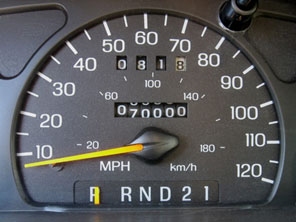
With the average cost of a vehicle repair running close to $400, some people may get uncomfortable with the idea of not being under warranty. To get peace of mind, they may start researching an extended warranty in hopes of avoiding surprise repair bills in the future. Is it worth it, or are you wasting your money?
 If your vehicle is brand new and comes with a factory warranty, there's probably not much use for an extended warranty as it will simply add to the cost of your vehicle. If, on the other hand, you're buying a used vehicle with a factory warranty that's about to or already has run out, an extended warranty makes more sense. If you're buying an older or classic vehicle that may need more maintenance than a brand-new one, an extended warranty is a very good idea.
If your vehicle is brand new and comes with a factory warranty, there's probably not much use for an extended warranty as it will simply add to the cost of your vehicle. If, on the other hand, you're buying a used vehicle with a factory warranty that's about to or already has run out, an extended warranty makes more sense. If you're buying an older or classic vehicle that may need more maintenance than a brand-new one, an extended warranty is a very good idea.
The first thing to realize about an extended warranty is that it's not a warranty at all, at least legally speaking. It's actually classified as a service contract. That gives a provider a lot more leeway to specify exactly what it will and won't cover. For that reason, be sure to read the terms of your extended warranty very carefully.
For instance, some warranties will specify what repair station you can take your vehicle to. It may have to be an approved shop versus your favorite neighborhood mechanic. They may also require you to pay out-of-pocket first, then receive a reimbursement. Others may pay the repair shop directly. You may have to pay a deductible for each trip to the shop even if the problem is a continuation (wasn't solved the first time). Many don't cover normal consumable items like brakes, oil changes or tires, while some will cover any item from bumper to bumper. Again, it pays to read the fine print.
Other factors you may want to consider pertain to vehicle use and condition. You'll have to weigh each one separately for your own particular situation.
How many miles per year will you drive?
 The more you drive, the more stress your vehicle components will face and the higher your chance of needing an emergency repair. If your normal commute is just a few miles and you never take long road trips, an extended warranty may not provide any value.
The more you drive, the more stress your vehicle components will face and the higher your chance of needing an emergency repair. If your normal commute is just a few miles and you never take long road trips, an extended warranty may not provide any value.
Do you usually set aside money for unexpected repairs?
People with the financial responsibility to keep a separate account just for auto-related repairs should continue to do so. This method has the benefit of giving you a healthy new car fund in the event that repairs are never needed.
Are you getting a third-party extended warranty?
Unscrupulous third-party providers have given this category of extended warranty some of the lowest satisfaction rates of any automotive product or service. If you do decide to use a third-party provider, exercise diligence and check multiple review sources first. If cost is not an issue and the vehicle is new enough, you may want to get an extended warranty that comes directly from the manufacturer. These are more expensive than third-party warranties and have interest attached as they are rolled into the payments.
Do you like to do your own repairs?
 Some people enjoy getting their hands dirty and turning a wrench under the hood. If you practice preventive maintenance, you may avoid random breakdowns and actually have some control over your repair budget.
Some people enjoy getting their hands dirty and turning a wrench under the hood. If you practice preventive maintenance, you may avoid random breakdowns and actually have some control over your repair budget.
Extended warranties can be a blessing or an unnecessary financial burden. It depends on your driving habits, your car's traits and what the fine print says. To learn more about vehicle warranties, contact Mike Duman Auto Superstore or stop by today.
